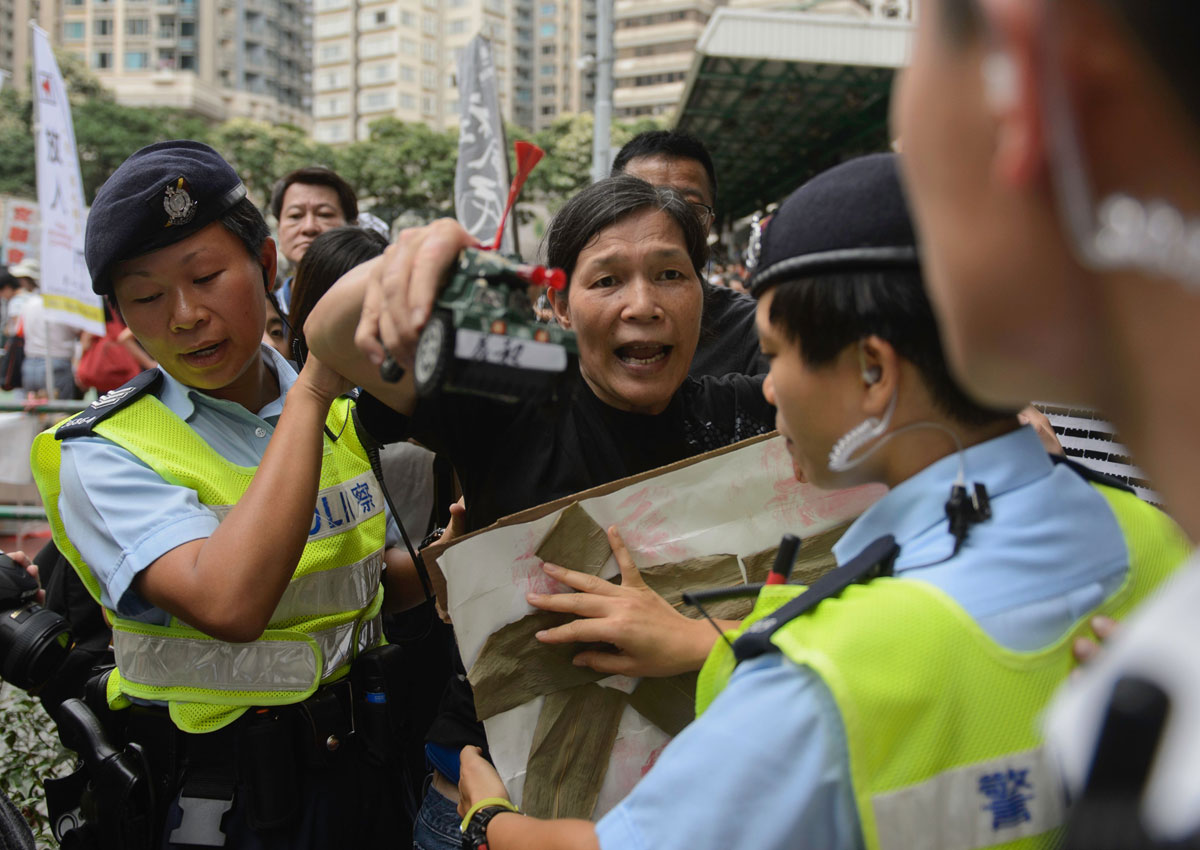On June 5, 1989, a simply crafted advertisement appeared in a Hong Kong newspaper. Its message was heartfelt: “Deeply grieve the patriots who paid the price for their heroism. Strongly condemn the Chinese Communist Party (CCP) leaders for the bloody massacre of Chinese people.”
The signee: Leung Chun Ying.
But in more recent times, Hong Kong’s Chief Executive has gone out of his way to avoid the subject of the June 4 Tiananmen incident. In 2013, he was even perceived to have scheduled a working trip to Shanghai to dodge the anniversary.
That did not stop the local press from asking about it. In response, Mr Leung spoke about his housing policies. The refrain from the pro-Beijing establishment has been that Hong Kong should let it go, given China’s progress since 1989.
Thus, Mr Leung’s remarks on Tiananmen this year are notable.
When asked on Tuesday about the impending anniversary, he did not sidestep it, as is his customary practice. Instead, he said: “Hong Kong is part of the country. Hong Kongers and the entire country’s people are connected by blood. Hong Kongers should care about major incidents on the mainland.”
The subtext: Tiananmen is worth remembering.
After years of urging Hong Kongers to let bygones be bygones, why this about-face now?
June 4 has been a special day on Hong Kong’s political calendar since 1989, when hundreds if not thousands were believed killed in the bloody crackdown on student activists in Beijing. That year, over a million Hong Kongers marched on the streets in solidarity with the Chinese activists. Pro-democracy advocates here smuggled key Tiananmen figures out of China.
Since then, Hong Kong – as the only place in China where the incident can be officially commemorated – has become the torchbearer for the memory of June 4. Over the past 27 years, an annual candlelit vigil at Victoria Park has become a pilgrimage for many Hong Kongers.
For them and the vigil organisers, getting Beijing to repudiate its narrative that the students were “counter-revolutionaries” and apologise for the crackdown is key to China’s democratic evolution – and, in turn, Hong Kong’s own political destiny.
Yet, a growing number of young Hong Kongers – spearheaded by the pro-independence localist movement which says it wants to safeguard Hong Kong’s identity and autonomy – appear set to eschew the event tomorrow.
For the first time, the Federation of Students, an umbrella group of student unions, will not be taking part. Alternative rival events are being organised, including a forum on “Hong Kong’s Future” featuring localist figures at the Chinese University of Hong Kong (CUHK).
Also out in the open is the warfare between the localists and the traditional pro-democracy group. In an editorial, a student leader insulted the vigil organisers as “pimps and bawds in a brothel” for continuing to care about what happens in China.
CUHK student union president Chow Shue Fan told The Straits Times: “The candlelit vigil is calling for a democratic China. But we don’t think we are Chinese and so we don’t have the responsibility to remember June 4. Whatever significance it holds for China, it means nothing to us.”
The rejection of the June 4 commemoration is symbolically potent, a deepening of the line in the sand between both groups.
The traditional pan-democrats – including the original organisers of the Occupy movement – have always declared themselves to be Chinese patriots who “love the country but not the party”.
Thus, for instance, they also stand shoulder to shoulder with China’s nationalistic activists in demanding the “return” of the Diaoyu (or Senkaku) Islands from Japan. Mr “Bull” Tsang Kin Shing, a former legislator from the radical League of Social Democrats, for instance, is among those who embark on regular voyages to stake a claim on the disputed islands.
So, they may needle the CCP with incessant calls to “remember June 4” or for one-party rule to come to an end, but at least it is a recognition that they are Chinese and have a stake in developments.
Now, many of Hong Kong’s young people are simply indifferent. This has clearly rattled Beijing and the local government – thus Mr Leung’s cryptic exhortation for Hong Kongers to care about what happens on the mainland.
xueying@sph.com.sg

This article was first published on June 03, 2016.
Get a copy of The Straits Times or go to straitstimes.com for more stories.


















